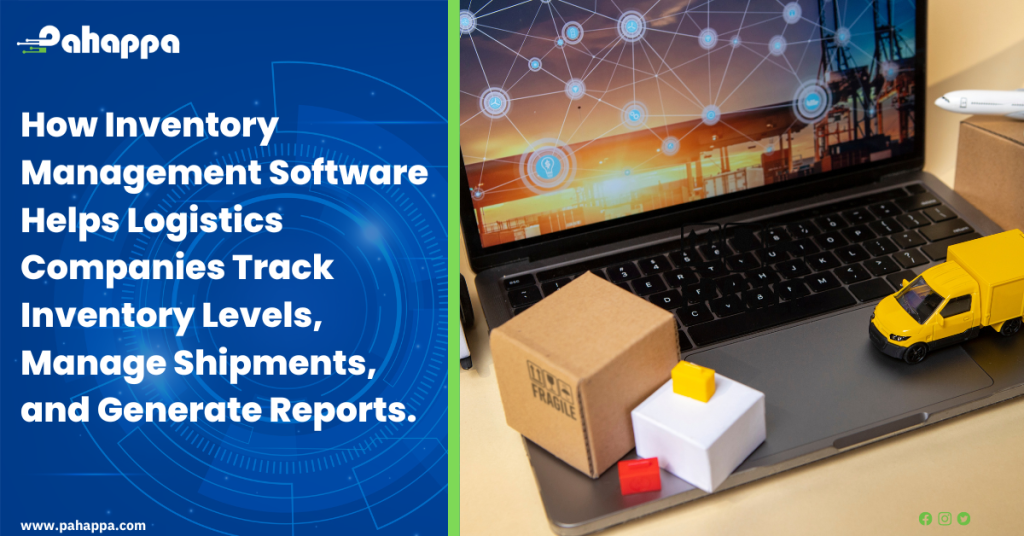Logistics companies are organizations that specialize in the management and coordination of the flow of goods, information, and resources between different points in the supply chain. They play a critical role in ensuring the smooth and efficient movement of products from suppliers to manufacturers, distributors, retailers, and ultimately to end consumers.
Logistics companies are involved in various aspects of the supply chain, including transportation, warehousing, inventory management, order fulfilment, and freight forwarding. They handle the physical movement of goods, as well as the associated documentation, customs clearance, and regulatory compliance.
Here are some common types of logistics companies:
- Freight Forwarders: These companies arrange and coordinate the transportation of goods on behalf of shippers. They work with various transportation modes such as air, sea, road, and rail to ensure that shipments reach their destinations on time and in good condition.
- Third-Party Logistics (3PL) Providers: 3PL companies offer a range of logistics services to businesses, including transportation, warehousing, inventory management, and order fulfilment. They act as intermediaries between shippers and carriers, providing expertise and resources to streamline supply chain operations.
- Warehousing and Distribution Companies: These companies specialize in the storage, management, and distribution of goods. They operate warehouses and distribution centres where inventory is stored, organized, and prepared for shipment.
- Courier and Parcel Delivery Services: These companies focus on the transportation and delivery of small packages and parcels. They often offer express or same-day delivery services to cater to time-sensitive shipments.
- Supply Chain Management Companies: These companies provide end-to-end supply chain solutions, including strategic planning, procurement, production coordination, inventory management, and distribution. They work closely with businesses to optimize their supply chain operations and achieve cost efficiencies.
Logistics companies play a vital role in supporting global trade and e-commerce, ensuring that goods are efficiently transported, stored, and delivered to meet customer demands. Their expertise and services help businesses streamline operations, reduce costs, and improve overall supply chain performance. It is because of this that logistic companies need automated systems to ease their operations. Logistic companies need an inventory management system for several reasons:
- Efficient Inventory Control: An inventory management system allows logistics companies to have accurate and real-time visibility of their inventory levels. It helps them track stock movements, locations, and quantities across multiple warehouses or distribution centres. With this information, they can efficiently manage and control their inventory, ensuring optimal stock levels and minimizing the risk of stockouts or overstocking.
- Accurate Demand Planning: By analyzing historical data and trends, an inventory management system helps logistics companies forecast demand accurately. This enables them to plan inventory levels accordingly, ensuring they have the right amount of stock available to fulfil customer orders and avoid excessive carrying costs.
- Streamlined Order Fulfillment: Inventory management software integrates with order management systems, enabling seamless order processing and fulfilment. It ensures that orders are allocated to available stock, reducing order errors and delays. This streamlines the order fulfilment process, improves customer satisfaction, and enhances overall operational efficiency.
- Efficient Warehouse Operations: An inventory management system provides features like pick lists, packing slips, and shipping label generation, optimizing warehouse operations. It helps logistics companies manage picking, packing, and shipping processes more efficiently, reducing errors and improving productivity. The system may also use barcode or RFID scanning technology to speed up inventory management tasks.
- Inventory Optimization: With an inventory management system, logistics companies can analyze stock turnover rates, stock ageing, and other key performance indicators. This data helps identify slow-moving or obsolete items, enabling better inventory optimization decisions. By reducing excess inventory and identifying opportunities for cost savings, logistics companies can improve their financial performance.
- Data Analytics and Reporting: An inventory management system generates reports and provides analytics on inventory performance, order fulfilment rates, stock accuracy, and more. These insights help logistics companies make data-driven decisions, identify areas for improvement, and track their operational performance over time.
An inventory management system enables logistics companies to have better control over their inventory, streamline operations, improve order accuracy, reduce carrying costs, and enhance customer satisfaction. It plays a crucial role in optimizing supply chain efficiency and maximizing profitability. Inventory management software plays a crucial role in helping logistics companies track inventory levels, manage shipments, and generate reports efficiently. Here’s a breakdown of how it helps in each of these areas:
- Inventory Tracking:
- Real-time Visibility: Inventory management software provides real-time visibility into stock levels, locations, and movements. It enables logistics companies to track inventory across multiple warehouses, distribution centres, or even during transit.
- Barcode/RFID Integration: The software often integrates with barcode or RFID scanning technology, allowing quick and accurate scanning of items for updates on stock levels and locations.
- Stock Replenishment: The software can automatically trigger reordering when stock levels reach predefined thresholds, ensuring optimal inventory levels are maintained.
- Batch and Serial Number Tracking: For logistics companies dealing with products that require batch or serial number tracking, the software can capture and maintain this information, enabling better traceability and recall management.
- Shipment Management:
- Order Processing: Inventory management software integrates with order management systems, enabling seamless order processing and fulfilment. It helps track the availability of products, allocate stock, and manage backorders.
- Shipment Tracking: The software integrates with shipping carriers, allowing logistics companies to track shipments in real time. This provides visibility to customers and internal stakeholders regarding the status and location of their shipments.
- Warehouse Operations: The software assists in optimizing warehouse operations by providing features like pick lists, packing slips, and shipping label generation. It streamlines the picking, packing, and shipping processes, reducing errors and improving efficiency.
- Reporting and Analytics:
- Stock Analysis: Inventory management software generates reports on stock levels, turnover rates, and stock ageing, enabling logistics companies to identify slow-moving or obsolete items and take appropriate actions.
- Demand Forecasting: The software can analyze historical data and generate demand forecasts, helping logistics companies plan inventory levels and make informed purchasing decisions.
- Performance Metrics: It provides reports on key performance indicators (KPIs) such as order fulfilment rates, on-time delivery, and inventory accuracy. This allows logistics companies to monitor and improve their operational efficiency.
With inventory management software, logistics companies are able to enhance the accuracy, efficiency, and transparency of inventory tracking, shipment management, and reporting for logistics companies. It streamlines operations, reduces costs, and improves customer satisfaction by ensuring timely and accurate order fulfilment. To find out more about Inventory Management systems and how they can help various business sectors click here.











